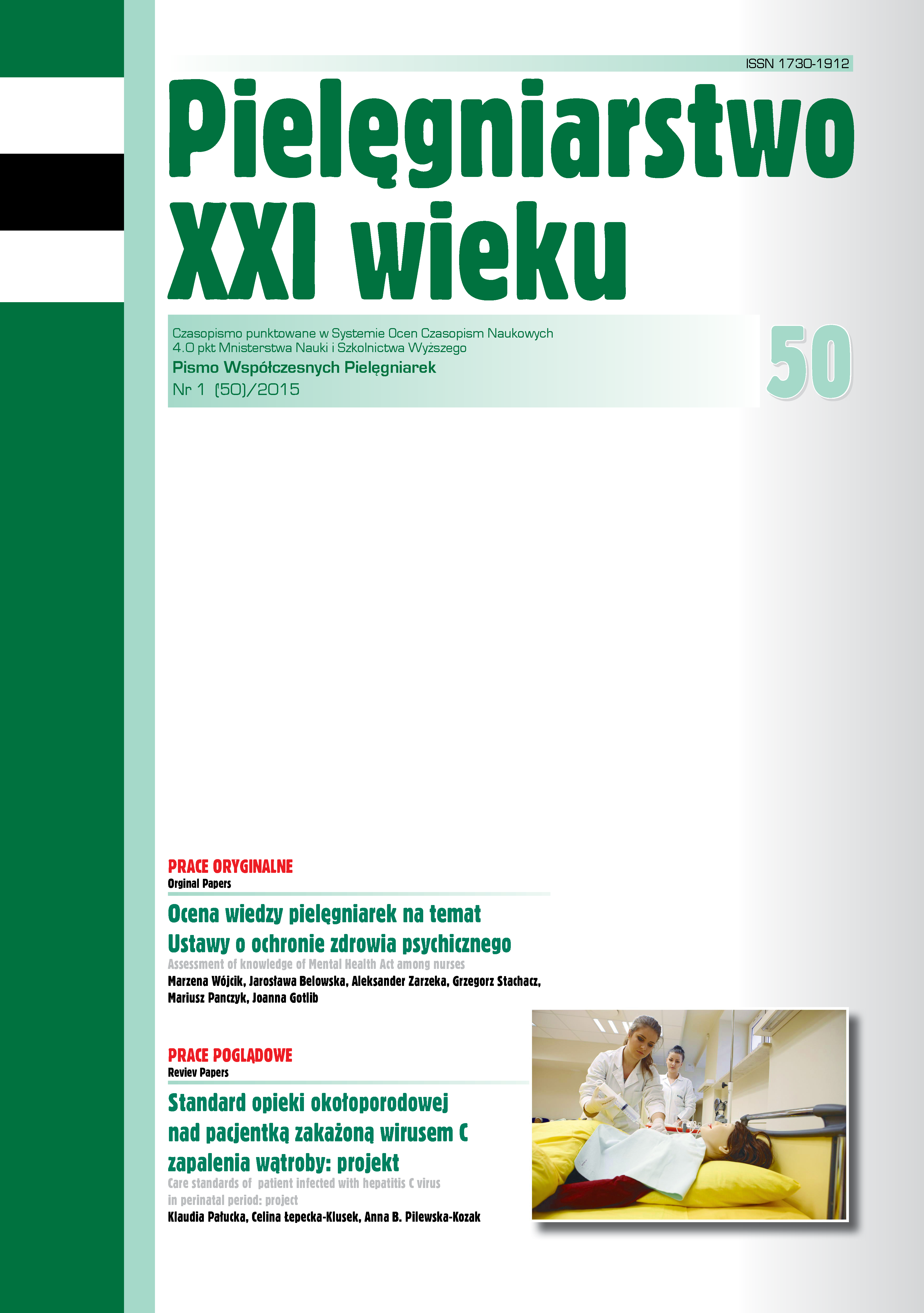Scale of social competence nursing
DOI:
https://doi.org/10.12923/p21w-2015-1/04Keywords:
social competence, professional competence, nursesAbstract
SCALE OF SOCIAL COMPETENCE NURSING
Aim. The objective of the report is to present an innovative tool to assess social competence among nursing students, as well as show the process of assessment of reliability and discriminant power.
Material and methods. The study was conducted in January and February 2014, among first year undergraduate nursing students. During the first stage of the study, a total of 72 students were examined using the tool – „Scale of Social Competence Nursing” (SSCN) – in the field of social competence set according to the educational standards in nursing. SSCN scale is made up of 10 measuring subscales, the names of subscales correspond to the names of social competence from D.K1. to D.K10. In the course of the research, the student was examined with the SSCN scale twice, i.e. in the first class of practical training and in the last educational semester, also during classes set in natural conditions. Twofold assessment, using the SSCN tool, shows progression or regression of the social competence of the student in question. The reliability of individual measuring subscales and the entire SSCN scale was measured with Cronbach’s alpha coefficient, based on the method of internal consistency, as presented in the classical test theory.
Results. Statistical analysis of the research material of the first stage of research confirmed the high quality of the validated tool. Assessed social competence resulting from the educational standard, designated with symbols D.K1., D.K2., D.K3., D.K4., D.K5., D.K6., D.K7., D.K8., D.K9., D.K10., showed the value of Cronbach’s alpha coefficient of over 0.9.
References
1. Solarczyk-Szewc H. Walidacja kompetencji społecznych w kontekście Krajowych Ram Kwalifikacji dla Szkolnictwa Wyższego. E – mentor. Dwumiesięcznik Szkoły Głównej Handlowej w Warszawie. 2013; 5 (52):4-14.
2. Starostka E. Kompetencje społeczne, a możliwości interpersonalne. www.psychologia. net.pl. 2014-10-28; 17:37
3. Tomorowicz A. Struktura kompetencji społecznych w ujęciu interakcyjnym. Psychiatria. 2011,8 (3): 91-96.
4. Bandach M. Trening umiejętności społecznych jako forma podnoszenia kompetencji społecznych. Economics and Management. 2013; 4:82-97.
5. Rozporządzenie Ministra Nauki i Szkolnictwa Wyższego z dnia 9 maja 2012, w sprawie standardów kształcenia dla kierunku studiów: lekarskiego, lekarsko-dentystycznego, farmacji, pielęgniarstwa i położnictwa. Dz. U. z 2012, poz. 631.
6. Bedyńska S, Cypryańska M. (red.). Statystyczny drogowskaz 1. Warszawa: Wydawnictwo SWPS; 2013.
Downloads
Published
Issue
Section
License
Copyright (c) 2024 Renata Rabiasz, Hanna Kachaniuk (Autor)

This work is licensed under a Creative Commons Attribution 4.0 International License.




